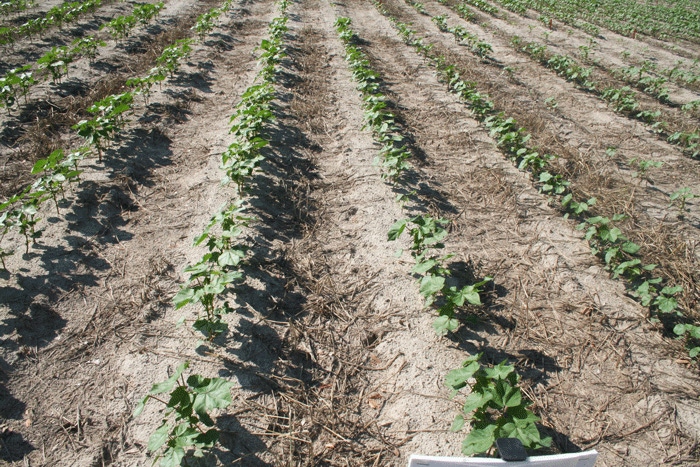June 3, 2013

Historically, years of abundant spring rainfall resulting in delayed cotton planting have been some of our highest plant bug damage years.
Plant bug damage can be more pronounced when the migration of adults from wild host plants occurs prior to or about the time cotton is setting the first pinhead squares (6thto 8thtrue leaf).
One reason for this is that when adult plant bugs feed on pre square cotton they feed in the terminal or growing tip. This feeding can disrupt the physiology of the plant causing abnormal growth (crazy cotton). This abnormal growth can delay fruiting for several weeks.
On May 20, I surveyed one of the primary spring host plants (daisy fleabane) for tarnished plant bugs in Alabama. On that date in Henry County (southeast Alabama) I found that about one-half of the plant bug population was dark (older) adults about ready to migrate to a new host.
In past years, cotton is about the only host that is attractive at this time of the spring. Most wild spring hosts are now drying down. The remaining one-half of the population on May 20 were immatures of all stages. This means that the migration to cotton could be extended for a several week period which is common in wet springs.
On May 30, I made a second survey in the same area and found fewer immatures but more light colored younger adults. This may indicate the older adults have moved to a new host already and some of the immatures are now young adults.
I made a second survey on daisy fleabane on May 30 about 80-90 miles farther north than the first one. In this survey I found the majority of the population was still immature.
The fleabane was still greener and fresher at this location which means the plant bug population was in perfect sync with the host plants.
Only time will tell what this means in 2013.
However, scouts, consultants and field men should be alert for the presence of adult plant bugs in cotton, and specifically late planted cotton, in the next 10-30 days.
More from Southeast Farm Press
Georgia cotton growers having tough time with thrips
Sensors designed to help growers irrigate crops only when necessary
Alabama farm leaders embrace new rural crime unit
Combat soldiers benefit from fruit, vegetable-infused rations
You May Also Like




